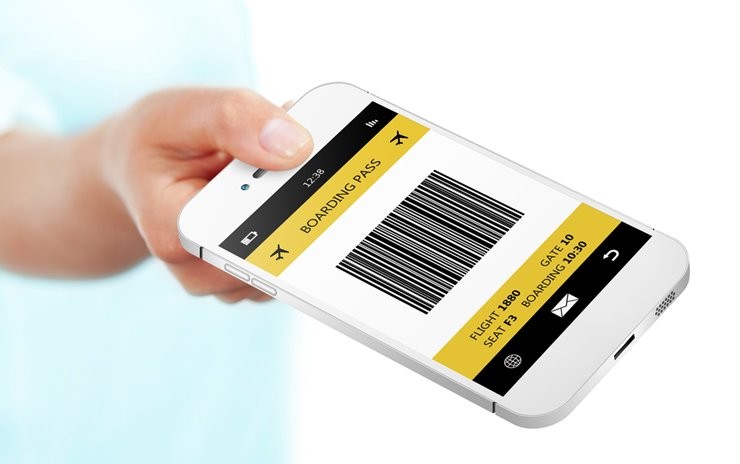Expedia: Thais are the most mobile-savvy and frequent travellers in the region
Brand Expedia released findings from its 2018 Global Flight and Hotel Etiquette study, an annual survey that looks at the flight and hotel etiquette habits of more than 18,000 adults around the world. Featuring insights from over 600 adult travellers in Thailand, the study found that Thais are the most frequent travellers in the region, with an average of 10.1 flights per year, followed by Japan and India travellers coming in at 2nd and 3rd.
Conducted on behalf of Brand Expedia by Northstar, the study serves as a reminder that even though travel is generally enjoyable, annoying behaviors and gross encounters can quickly ruin the good vibes when travelling. The survey was conducted online from February 22 to March 19, 2018 across North America, Europe, South America and Asia Pacific using an amalgamated group of best-in-class panels among from across 23 countries.
Thai travellers the most tech savvy globally
On average, travellers are taking 5 one-way flights per year, with personal flights (3.2 per year) accounting for two-thirds of these flights and another third being business trips (1.6 per year). Business travel is particularly high in Thailand (4.5), Japan (3.9) and India (3.6). Economy class travel predominates, especially for personal trips, with US and Thai business travellers being the most likely to travel in premium economy or above.
Most travellers still prefer a printed boarding pass, with nearly half (47 percent) using print only, and a third (32 percent) using a combination of both print and mobile boarding passes, while over one fifth (21 percent) would use a mobile device. Americans (28 percent) and Italians (27 percent) along with select markets in Asia (Thailand 30 percent, India 29 percent, South Korea 27 percent) lead the way for chosing mobile-only boarding passes.
When it’s time to snooze, who loses?
When it comes to passing a sleeping passenger, most say they would wake them and ask them to move (42 percent), a third would climb over (20 percent) with their back to them and facing them (15 percent), while nearly a quarter (23 percent) would just wait.
Travellers in Asian markets tend to be more likely to wake them: led by Hong Kong (60 percent), Thailand (59 percent) and Singapore (58 percent).
When it’s time to buckle up, Thais would keep their shoes on.
Nearly a third of passengers (30 percent) say they take off their shoes but not their socks, with just 7 percent who go barefoot on airplanes. Japanese were the most likely to go barefoot (16 percent), while Swiss (48 percent) and British (43 percent) travellers were most likely to take off their shoes but keep on their socks. Mexicans (85 percent), Thai (81 percent), Italians (80 percent), Indians (77 percent) and Spaniards (77 percent) were most likely to say that shoes should remain on.
In-flight and hotel stay pet peeves for Thai travellers
Though continents apart, Thais’ pet peeve when it comes to most annoying in-flight habits do not differ much from other travellers from other parts of the world. As far as annoying passengers go, the worst in most markets are the seat kicker/bumper/grabber, chosen by a majority (51 percent) of global travellers (Thailand 37 percent), followed by the Aromatic Passenger (43 percent globally vs Thailand 42 percent), the Inattentive Parent (39 percent globally vs Thailand 34 percent), Personal Space Violator (34 percent globally vs Thailand 43 percent) and the Audio Insensitive (29 percent globally vs Thailand 31 percent).
When checking into their hotel rooms, guest are mostly annoyed to find bed bugs (61 percent globally vs Thailand 34 percent), a used condom (55 percent globally vs Thailand 52 percent) or a cigarette smoke or foul smell (46 percent globally vs Thailand 59 percent).
The most annoying guests include: The Inattentive Parents (45 percent globally vs Thailand 40 percent), The Hallway Hellraiser (41 percent globally vs Thailand less than 30 percent) and the In-Room Revelers (41 percent globally vs Thailand 40 percent).
Making travel decisions
Travellers are closely divided between booking a flight first and then a hotel (43 percent) compared to a travel package with a flight and hotel (38 percent), while relatively few would book a hotel first (9 percent). Singaporeans (64 percent), Malaysians (64 percent) and South Koreans (63 percent) travellers are most likely to book a flight first, with Thais at 37 percent.
Choosing to stay at big chain hotels seem to dominate in most markets as a first or second choice (69 percent globally vs Thailand 52 percent), with boutique hotels (51 percent globally vs Thailand 44 percent) and vacation/holiday rentals (34 percent globally, Thailand 33 percent) as the next most popular option.
Wi-fi connection is by far the most important hotel amenity for global travellers and is the top hotel amenity for Thai travellers at 71 percent, followed by complimentary toiletries (34 percent globally vs Thailand 46 percent), an in-room fridge (34 percent globally vs Thailand 45 percent), along with freebies such as spa credits and food/beverage credits (Thailand 47 percent).
“Thai travellers are no doubt frequent travellers who love to stay connected to their friends and families back home. It thus comes at no surprise that Wi-Fi emerged as the most important hotel amenity among Thais, ahead of even price and location”, said Lavinia Rajaram, Regional Head of Communications for Brand Expedia in Asia.
Despite being a price-sensitive group of travellers, it was surprising to see that only 38 percent of Thai travellers book their flights and hotels together as a package.





